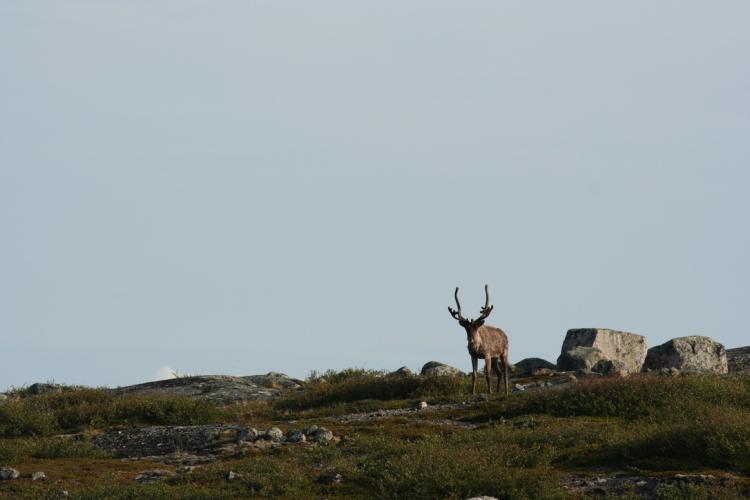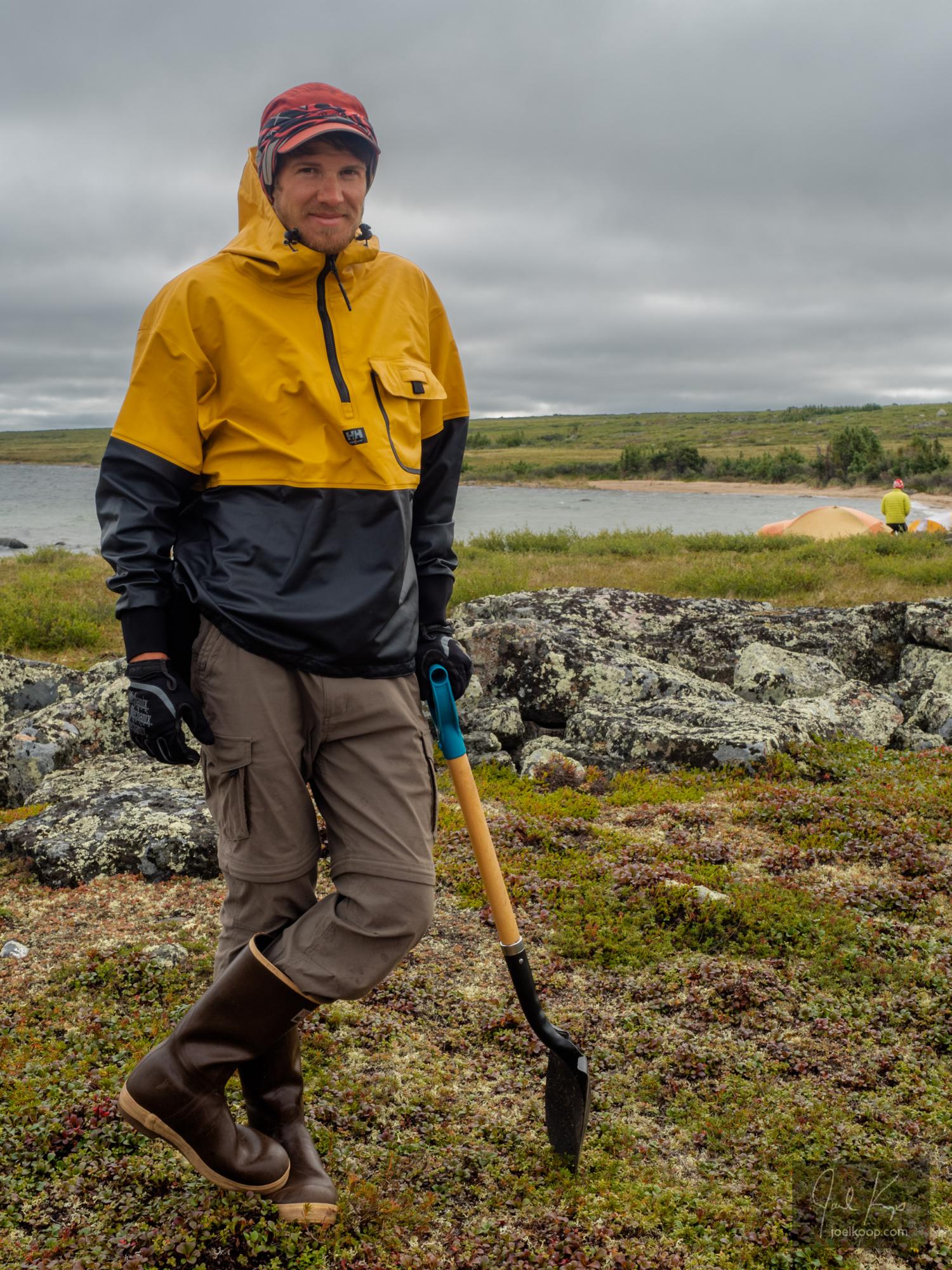Breadcrumbs
Spatial and temporal trends in range-use by the Bathurst caribou during a population decline, 1997-2019

This presentation by YukonU's Robin Mennell, is part of Government of Yukon's Science Community of Practice (SCOPe) Lunch-and-Learn webinar series.
Presentation:
The Bathurst barren-ground caribou herd of Northwest Territories and Nunavut declined by 98% between 1986 and 2019; from an estimated population of 470,000 animals to just 8,200. Although caribou herds are known to fluctuate greatly between high and low populations, the recent population low has raised fears that this herd may go extinct. There are many factors which influence herd health and disentangling how each factor contributes to decline is difficult. Our research goal was to examine broad scale spatial-temporal trends in range-use of the Bathurst herd from 1997-2019. To do this we conducted movement analyses in tandem with Brownian bridge mapping, to create maps specific to seasonal range-use annually. These analyses showed considerable changes in both the timing of these seasonal ranges and in the extent of these range-use. These temporal and geographic changes are not consistent with changes observed in other declining herds; a discrepancy that may indicate the Bathurst caribou are responding specifically to unique regional changes, such as timing in snowmelt, vegetative phenology, changes in insect activity, and industrial activity.
 Bio: My name is Robin Mennell, I was born and raised outside of Carcross, Yukon. This upbringing helped me develop a deep reverence for the natural world. I am a landscape ecologist with a decade of experience working with/teaching youth about the natural world. I finished my master’s degree in geography last year through Queen’s University. Through this degree, I studied the declining Bathurst caribou herd in NWT and Nunavut. I learned a tremendous amount about barren-ground caribou migration and range-use through numerous meetings with experts and knowledge keepers in NWT. This experience cemented my belief that the health of our land is intrinsically tied to the health and wellbeing of our communities. I believe involving youth in today’s problems, from an early age, is one of the most effective solutions at combating ecological changes. Currently I am coordinating the youth STEM programs at Yukon University, a role where I get to impart my knowledge onto up and coming scientists, educators, and changemakers.
Bio: My name is Robin Mennell, I was born and raised outside of Carcross, Yukon. This upbringing helped me develop a deep reverence for the natural world. I am a landscape ecologist with a decade of experience working with/teaching youth about the natural world. I finished my master’s degree in geography last year through Queen’s University. Through this degree, I studied the declining Bathurst caribou herd in NWT and Nunavut. I learned a tremendous amount about barren-ground caribou migration and range-use through numerous meetings with experts and knowledge keepers in NWT. This experience cemented my belief that the health of our land is intrinsically tied to the health and wellbeing of our communities. I believe involving youth in today’s problems, from an early age, is one of the most effective solutions at combating ecological changes. Currently I am coordinating the youth STEM programs at Yukon University, a role where I get to impart my knowledge onto up and coming scientists, educators, and changemakers.
This series offers SCOPe members and the public an opportunity to hear from those who are leading the charge to generate knowledge that addresses crucial and pressing questions for Yukon and beyond.